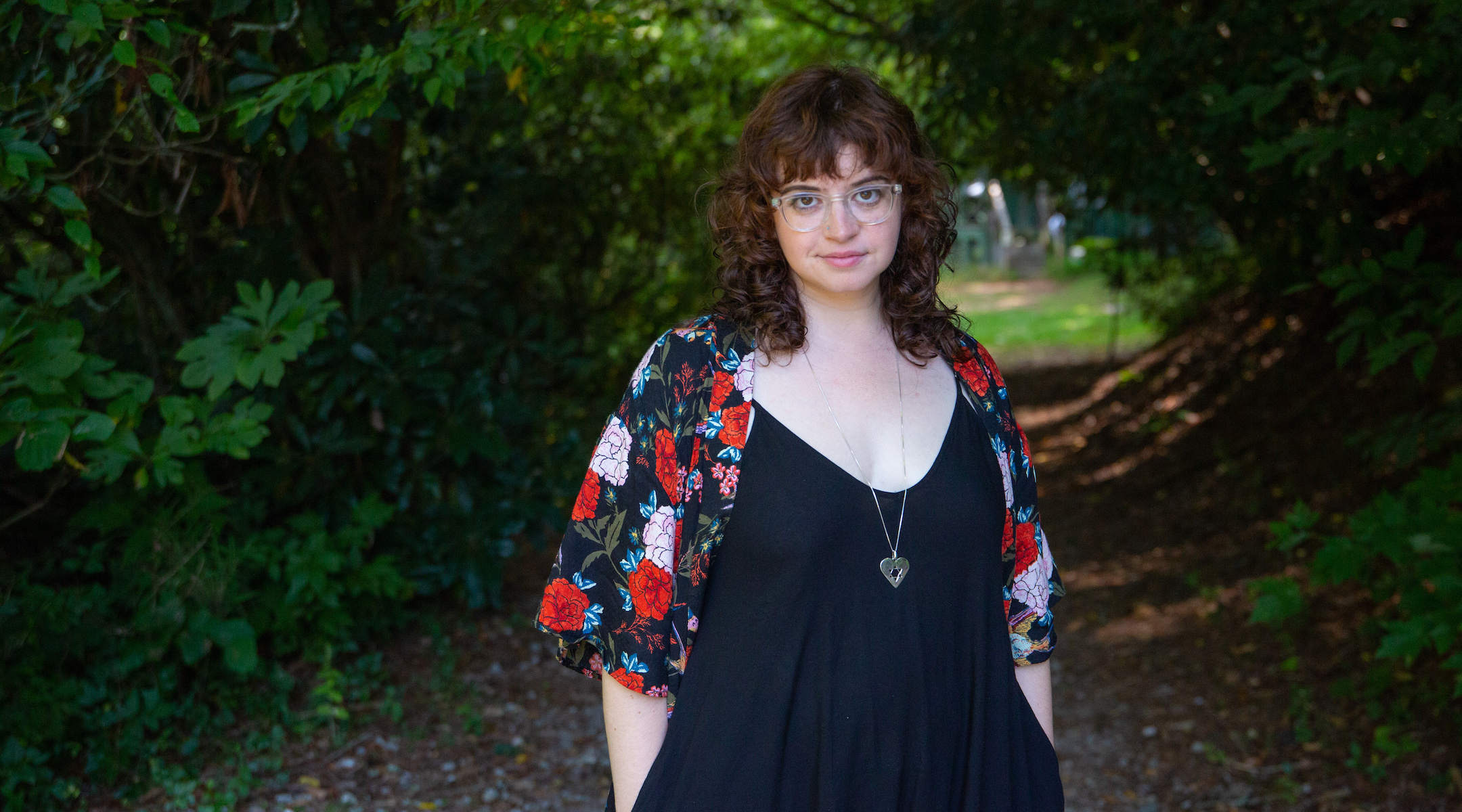(JTA) — As a freelance Jewish educator, musician, and consultant, Eliana Light knows the coronavirus outbreak puts her line of work in a precarious situation.
Instead of being hired to perform at synagogues, or getting invited to be an artist in residence at Jewish centers around the country, she will have to adapt as cities enact quarantine and social distancing policies — and just like freelance performers and small businesses in other industries, she could lose a lot of her traditional business.
But the whole ordeal has had the opposite than expected effect on her.
“Personally, I’ve gotten up the past couple of days with more energy and excitement than I have in a long time,” Light said on a Zoom call from her home base, a Moishe House in Durham, North Carolina. “I did the elliptical for two hours this morning… That’s not me, I’m not that person usually!”
She has big goals she now plans to tackle in the coming months, and thinks the Jewish community will emerge stronger than ever from the trying time.
“I think big shifts like this help us as individuals and as a community sort out our priorities, what matters to us, what’s important in life,” she said. “All of a sudden, all of my gigs get canceled, it’s time to do all the things you want to do … more professional development, clergy training, layleader training, one-on-one training and consulting, a podcast, a new album.”
Light, 29, who records albums of original Jewish folk music in addition to performing and leading services in a variety of ways, is one of several young Jewish artists and spiritual leaders hoping that they will retain an audience as they shift their work online, in the form of Zoom calls, Facebook Live sessions and other forums. Unlike the many synagogues and large organizations that have at least somewhat of a built-in audience, Light and her cohort will have to get creative and do a lot of online outreach.
The program brainstorming and decision making process is happening in real time, as the virus’ spread accelerates each day and forces more people online for their Jewish learning needs. Hours before being called for this article, Light and some of her friends, including Chava Mirel, Rachel Goldberg and Rabbi Alexis Pinsky, formed what they are calling the Mispacha Collective. Their debut online event, which they’re dubbing the World Synagogue Sing, is set to take place Sunday.
On Thursday, on a bit of a whim, Light tried running an impromptu morning shacharit prayer service through Facebook Live and was overwhelmed by the response. In addition to the 1,000-plus views, many people donated to Light through a PayPal account. The individual donations ranged from about $3 to $54.
Light thinks people understand the difficulties that freelancers and small businesses are going through, and that their situation could get worse the longer the pandemic wears on.
“People don’t want to support the thing that you create, they want to support you,” Light said. “I’m not even worried about money, I know we’re going to figure it out.”
Light is far from alone in these endeavors. Jewish kids performer Joanie Leeds is offering “Quarantine Kids Concerts” each afternoon. Interested viewers will pay a subscription fee through PayPal or Venmo to access a private Facebook group. Josh Nelson, Noah Aronson, Shira Kline, Elana Arian and Rabbi Leora Kaye are offering a “Quarantine Shabbat,” or Shabbat service via Facebook Live. Lex Rofeberg and his Judaism Unbound group has started a Facebook page that gathers many of these online offerings in one place.
There are challenges for Light and others in her field, who are used to thriving off of in-person interactions at their performances in moving online. For instance, Light noted that the steep increase in screen time has hurt her eyes. She also finds it alienating at times to not be able to see her audience as she plays guitar.
There are technical obstacles too, such as the lag that often occurs during a Zoom call, depending on everyone’s internet connection. Light’s in the process of hooking up a better quality microphone to her computer, and downloading software to help with the delays.
But overall, Light is full of enthusiasm about the potential that online work offers, and the new audiences around the world that she could reach.
“I hope we don’t go back to the way things were, [and] call each other even more and share our resources and support each other,” she said. “Hopefully we get back to something even better than it was before.”
JTA has documented Jewish history in real-time for over a century. Keep our journalism strong by joining us in supporting independent, award-winning reporting.






